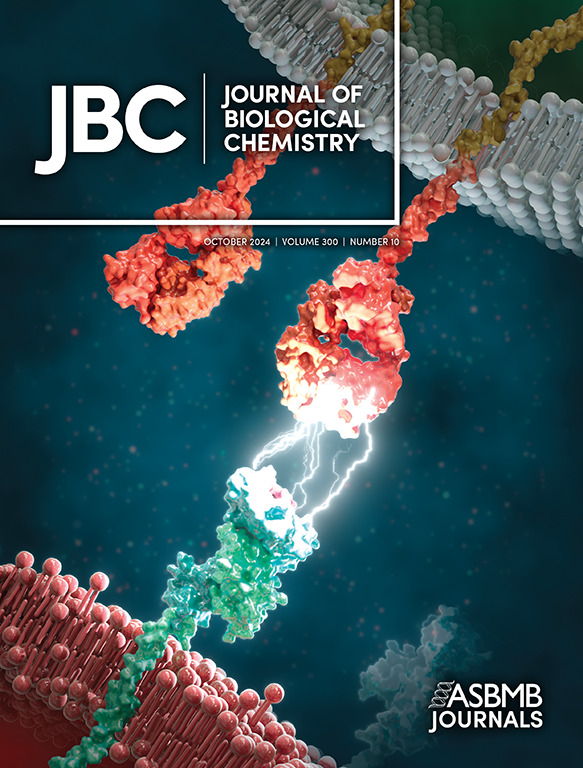微电流刺激诱导p53突变体和5- fu耐药乳腺癌细胞死亡。
IF 4
2区 生物学
Q2 BIOCHEMISTRY & MOLECULAR BIOLOGY
引用次数: 0
摘要
5-氟尿嘧啶(5-FU)是乳腺癌常用的化疗药物。其疗效依赖于p53的功能,而p53的突变有助于5-FU化疗期间耐药的发展。在这里,我们报道了微电流刺激(MCS) p53突变乳腺癌细胞系诱导p53介导的细胞死亡。虽然人乳腺癌细胞系MDA-MB-231和MDA-MB-468细胞由于p53突变而对5-FU的敏感性较低,但MCS (300 μA, 30 min)可诱导这些细胞凋亡,提高荷瘤小鼠5-FU的抗肿瘤作用。mcs诱导的细胞凋亡是通过细胞内Cu2+离子和活性氧的增加介导的,同时p53对促凋亡基因的转录增强。此外,MCS诱导对5-FU产生耐药性的MDA-MB-231细胞凋亡,抑制5-FU敏感性降低的荷瘤小鼠的肿瘤生长。这些发现表明,涉及MCS的方法可以作为开发乳腺癌治疗策略以克服p53突变的基础。本文章由计算机程序翻译,如有差异,请以英文原文为准。
Microcurrent stimulation induces cell death in p53-mutant and 5-FU-resistant breast cancer.
5-Fluorouracil (5-FU) is a commonly used chemotherapeutic agent for breast cancer. Its efficacy relies on the function of p53, and mutations in p53 contribute to the development of resistance during 5-FU chemotherapy. Here, we report that microcurrent stimulation (MCS) of a p53-mutant breast cancer cell line induces p53-mediated cell death. Although MDA-MB-231 and MDA-MB-468 cells, both human breast cancer cell lines, are less sensitive to 5-FU due to p53 mutations, MCS (300 μA for 30 min) induced apoptosis in these cells and improved the antitumor effect of 5-FU in tumor-bearing mice. MCS-induced apoptosis was mediated by an increase in intracellular Cu2+ ions and reactive oxygen species, along with the concurrent transcriptional enhancement of pro-apoptotic genes by p53. Furthermore, MCS induced apoptosis in MDA-MB-231 cells that had developed resistance to 5-FU and inhibited tumor growth in tumor-bearing mice with reduced 5-FU sensitivity. These findings suggest that an approach involving MCS could serve as a foundation for developing breast cancer treatment strategies to overcome p53 mutations.
求助全文
通过发布文献求助,成功后即可免费获取论文全文。
去求助
来源期刊

Journal of Biological Chemistry
Biochemistry, Genetics and Molecular Biology-Biochemistry
自引率
4.20%
发文量
1233
期刊介绍:
The Journal of Biological Chemistry welcomes high-quality science that seeks to elucidate the molecular and cellular basis of biological processes. Papers published in JBC can therefore fall under the umbrellas of not only biological chemistry, chemical biology, or biochemistry, but also allied disciplines such as biophysics, systems biology, RNA biology, immunology, microbiology, neurobiology, epigenetics, computational biology, ’omics, and many more. The outcome of our focus on papers that contribute novel and important mechanistic insights, rather than on a particular topic area, is that JBC is truly a melting pot for scientists across disciplines. In addition, JBC welcomes papers that describe methods that will help scientists push their biochemical inquiries forward and resources that will be of use to the research community.
 求助内容:
求助内容: 应助结果提醒方式:
应助结果提醒方式:


